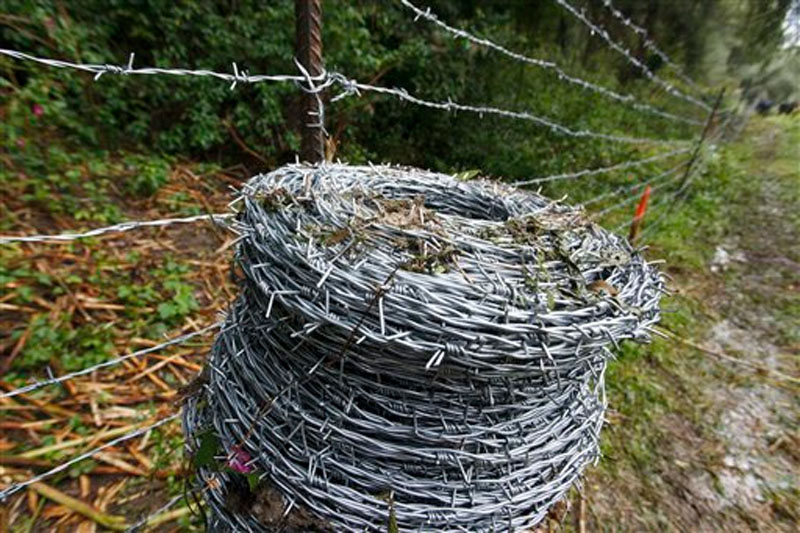Hungary pledges to consult before shutting Croat border
BUDAPEST: Hungary's prime minister pledged Friday to seek support from the United Nations and other nations in the region before shutting down its border with Croatia — a move that would slam the door on the flow of migrants seeking refuge in other parts of Europe.
Viktor Orban promised to consult with others as Hungary moves to complete a razor wire fence along its Croatian border, a decision that would block the flow of migrants and insert more confusion into an already chaotic situation in the Balkans. Some 59,000 asylum-seekers have entered Croatia since Hungary shut its border with Serbia on Sept. 15.
"It is not enough to tell the world through the press what we are doing and why," Orban told reporters in Vienna. "We have to go everywhere and gather support before the closing of the (border) takes place."
The shutdown of the border between Hungary and Serbia set off a domino effect of misery throughout southeastern Europe. Croatia first welcomed the migrants, thinking that they would transit through Slovenia, into Austria and on into Germany. But Slovenia refused to let the people pass, leaving Croatia, one of the poorest of the European Union nations, responsible for the human wave.
The lack of a unified European Union response on how to address shutdown tossed the matter into further disarray. Croatia then began to simply bus the migrants and refugees to Hungary.
Orban, who was in Vienna for talks with Austrian Chancellor Werner Faymann, indicated that the situation in countries that are receiving the migrants is also under strain. Orban suggested that Faymann opposed the idea of opening up a transit corridor for migrants from the Hungarian-Croatian border toward Austria and Germany.
Faymann and other Austrian officials have been very critical of Hungary's border fences, damaging bilateral relations. Orban said Hungary was getting "friendly fire in our backs" from Austria while trying to comply with EU migration rules.
Austria "denied its friendship to Hungary in particularly difficult times and I came to restore the earlier condition," Orban said.
Faymann, in separate comments to reporters, described relations with Hungary as "correct" but also said that there was "tension," the Austria Press Agency reported. He said it was a meeting "that shows we have to talk to each other."
The Austrian leader said Hungary's measures to secure the EU external border were lawful, but stressed that the right to asylum is a human right — and called on Orban to honor laws both guaranteeing freedom of movement in the so-called Schengen zone and laws governing the right to asylum.
In Croatia, meanwhile, rain and colder temperatures added to the misery of people, many of whom had taken perilous sea journeys to land in Greece and start walking for days to go north.
"There is no wall, no wire that can stop the people," Croatia's Interior Minister Ranko Ostojic said while visiting the Opatovac transit center in Croatia.
Migrants huddled under blankets and waited, most of them hoping to go as soon as possible.
"I just want to go only to Germany," said Adnan Habbabi, 36, from Basra, Iraq, who hopes to hook up with family members there.
"Inshallah, we hope. We hope to be rich there," he said.
Closing the Hungarian border with Croatia will raise another obstacle, and at a minimum slow the traffic, and potentially strand more of the people transiting the Balkans while seeking sanctuary from conflict and poverty in the Middle East, Africa and Asia.
Hungary has also installed spools of razor wire near a border crossing with Slovenia, which like Hungary is part of the EU's Schengen zone of passport-free travel.
The move is meant to block direct detours by migrants who may attempt to circumvent the fences on the Serbian and Croatian borders to reach Germany and other countries in Western Europe.






